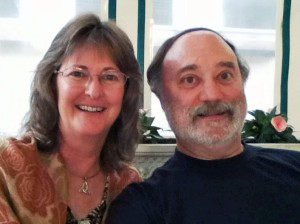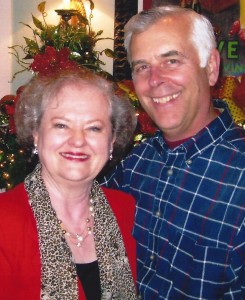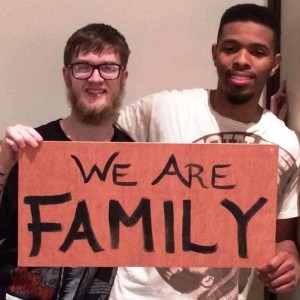Dear Brothers and Sisters in Christ,
 Early in its history, the Christian church, desiring to worship Jesus by focusing on the great saving events of his death and resurrection, formed a tradition of celebrating in the spring what became known as “Holy Week.” My Weekly Update letters this week and next anticipate this important season of worship, which this year begins on April 13 with Palm Sunday and concludes on April 20 with Easter Sunday. I hope you will find these letters helpful as you prepare to lead your congregation in Holy Week celebrations.
Early in its history, the Christian church, desiring to worship Jesus by focusing on the great saving events of his death and resurrection, formed a tradition of celebrating in the spring what became known as “Holy Week.” My Weekly Update letters this week and next anticipate this important season of worship, which this year begins on April 13 with Palm Sunday and concludes on April 20 with Easter Sunday. I hope you will find these letters helpful as you prepare to lead your congregation in Holy Week celebrations.
Palm Sunday commemorates Jesus’ entry into Jerusalem amidst a huge demonstration of support by the common people. No doubt, most of them were thinking that Jesus would declare himself a Messiah in the tradition of the Maccabees, who had temporarily restored some of the Jewish nation’s glory nearly two centuries earlier. Even some of Jesus’ disciples thought that Jesus was the warrior-king who would deliver them from Roman oppression (John 12:17-18). But Jesus’ entry into Jerusalem was far from the “triumphant” entry of a conquering military general riding astride a white war horse. We know some of the details from Luke 19 and John 12.
Jesus entered Jerusalem from the humble town of Bethany, riding on a donkey. Bethany was about two miles from Jerusalem, just off the road from Jericho. There would have been some houses and trading stalls along the road leading into the city. So when the people heard he was coming, they lined the road to greet him. They threw their coats and cloaks in his path, as well as the branches of the trees.
The palm branch was a traditional symbol of Israel, so waving it was like waving the Jewish national flag. They waved palm fronds in the air shouting “Hosanna,” which in Hebrew means “God saves” and “Blessed is the king of Israel!” (John 12:13, quoting Psalm 118:25-26). This is how people in the first century greeted a visiting king—they would go out to meet him, praise him and then escort him into the city. These people were welcoming Jesus as their king.
At that time of year, since the Passover festival was only a week away, there would also have been many sightseers and pilgrims in the area. Many would have heard about Jesus the great teacher, miracle-worker and, perhaps, the one who would lead them to freedom from Roman oppression. They may have remembered Zechariah’s prophecy: “Rejoice greatly, Daughter Zion! Shout, Daughter Jerusalem! See, your king comes to you, righteous and victorious, lowly and riding on a donkey, on a colt, the foal of a donkey” (Zechariah 9:9).
No wonder everyone greeted Jesus so enthusiastically!
Well, not everyone. The religious leaders, who had an interest in maintaining the status quo, saw him as a threat. “’See, this is getting us nowhere. Look how the whole world has gone after him!’ they said to one another” (John 12:19). The atmosphere in Jerusalem was always tense during the religious festivals. The political leaders feared the gathering crowds could result in demonstrations and protests that could easily get out of hand. The religious leaders, such as the Pharisees, feared the same since they did not want to give their Roman overlords an excuse to crack down.
Some of these words that the crowd sang and shouted in praise were also chanted in the temple during the Passover festival. But these people were praising him for the wrong reason. They thought he had come to liberate them from Rome, and thus missed the real point of these scriptures. The Messiah had come to liberate them and all of humanity, from a much greater oppression—the absolute tyranny of evil in the human heart and society and from eternal alienation from God.
It was an understandable mistake, given the situation at the time. It is a mistake many still make today. They see in Jesus someone who can help them fulfill their agenda. Today we know of some appalling examples, like the malevolent sectarian militias in Africa who attach the word “Christian” to their cause, while committing crimes against humanity. Most of us would never go to these extremes. But we all can make the mistake of that Palm Sunday crowd—using the name of Jesus to advance our personal projects and agendas, while calling it “God’s work.”
We do well to remember that Jesus said, “They worship me in vain; their teachings are merely human rules” (Matthew 15:9). It is so easy to shift the focus away from Jesus and onto ourselves. I well remember how we in the Worldwide Church of God used to approach the spring festival with a sense of foreboding. We were admonished to “examine ourselves” to see if we were “worthy” to receive the bread and wine at our annual Lord’s Supper service (what we called “Passover”).
Maybe some still have this sense of foreboding in coming to the Lord’s table. But can you see how this shifts the focus away from Jesus and onto ourselves? It can lead us to think in terms of what we have done and cause us to focus on our attempts to either condemn or justify ourselves on that basis. But Jesus told us to partake of the Lord’s Supper in memory of what he had done for us (Luke 22:19). Through his self-giving, Jesus delivered us from the delusional prison of self-justification, freeing us both to receive and to extend God’s forgiveness.
As you prepare your congregation to celebrate Holy Week, please help them to more deeply grasp its true meaning. The apostle Paul referred to the events of this important season as having primary importance in salvation history: “For what I received I passed on to you as of first importance: that Christ died for our sins according to the Scriptures, that he was buried, that he was raised on the third day according to the Scriptures, and that he appeared to Peter, and then to the Twelve” (1 Corinthians 15:3-5). These central events of the gospel, which began to unfold on the road into Jerusalem on Palm Sunday, did not just change the history of one small nation. They altered forever the destiny of everyone who has ever lived. That is something to celebrate!
Your brother in Christ,











